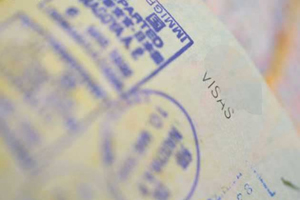 Washington, Jun 4: Narendra Modi led Bharatiya Janata Party's (BJP) stunning election victory had put behind the issue of US visa for him and it's unlikely to impact bilateral ties with the US, according to a noted Indian strategic expert.
Washington, Jun 4: Narendra Modi led Bharatiya Janata Party's (BJP) stunning election victory had put behind the issue of US visa for him and it's unlikely to impact bilateral ties with the US, according to a noted Indian strategic expert.
After his election victory, the new Indian prime minister had made it clear that how India engages with US bilaterally would not be impacted by how an individual was treated, Commodore (retd.) C Uday Bhaskar, Distinguished Fellow, Society for Policy Studies, said Tuesday.
But Modi, whose US visa was revoked in 2005 for his alleged complicity in the 2002 Gujarat riots, was unlikely to visit the US in a hurry, he said in a talk on "India-US Ties Under Narendra Modi" at the Hudson Institute, a Washington think tank.
In Bhaskar's view the UN general assembly session in September would be the first contact between the US and Indian leaders.
Modi's first priority was the seven-nation South Asian Association for Regional Cooperation (SAARC) and Japan. Modi has little foreign policy experience yet he "hit the ground running" with an invitation to SAARC leaders to attend his swearing-in ceremony.
"With that one act Modi has energised a moribund SAARC," Bhaskar said and he expected the new Indian leader to do the same with "moribund" India-US relations.
Comparing the landmark India-US nuclear deal to the Nixon-Kissinger opening to China, Bhaskar said it had not only "ended India's nuclear isolation but also brought India into the larger global politico-diplomatic grid." He also expected the new Indian parliament to revisit the nuclear issue as India's tough liability law has practically stalled the deal.
Bhaskar was sure the two sides will be able to find a modus vivendi to resolve the issue.
Modi was "very very aware of the global business environment," he said and knows India needs to engage with the US to regain its 8-9 percent growth rate from the current 4.4 percent.
India-US bilateral trade had shown remarkable growth to touch nearly $100 billion in recent years and it may well be touching $500 billion in four-five years, Bhaskar said.
India's defence modernisation plan with an allocation of $1.5 trillion also offered another opportunity, he said. The two sides also need to be talking about technology, cyber and space.
Despite many differences, "India and the US need to engage with each other as it shapes the grid in Asia and at the global level," Bhaskar noted.






Comments
Add new comment